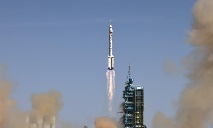Japan has hidden agendas following Washington's anti-China policy
TOKYO, June 11 (Xinhua) -- Former Japanese Prime Minister Shinzo Abe has recently talked nonsense regarding the Taiwan question at a forum, once again casting "what happens to Taiwan" as "also Japan's business" and claiming to force China to "give up Taiwan's reunification by force," Japan's Sankei Shimbun reported.
Experts found that in recent years, Japan has become increasingly hawkish towards China in line with the Unites States' Indo-Pacific strategy, serving as a main accomplice of Washington in containing China in the Asia-Pacific region.
Closely following Washington's anti-China stance, Japan seeks to loosen control over military and reshape its own standing in Asia. However, such a move does no good to regional peace and stability or the healthy development of China-Japan relations, and Japan will surely pay the price, observed analysts.
FOLLOWING U.S. STEP
During his visit to South Korea and Japan in late May, U.S. President Joe Biden attended multilateral events to peddle his Indo-Pacific Strategy and roped in U.S. allies to contain China.
Japan was the most active on the sidelines of Biden's visit, not only making gestures on such issues as the East China Sea, the South China Sea, Hong Kong, Xinjiang and Taiwan.
Incumbent Prime Minister Fumio Kishida told a news conference that Japan will cooperate with the United States to force China to "fulfill its responsibilities in accordance with the rules of the international rules."
In recent years, with mounting U.S. containment and suppression of China, Japan's policy toward China has also shifted to confrontation.
As for politics and security, Japan actively participated in the core framework of Washington's Indo-Pacific Strategy -- a quadrilateral mechanism involving the United States, Japan, India and Australia.
Japan kept linking up with other U.S. allies to strengthen the alliance system for the United States, and made great efforts to push those outside the region to turn their attention to the Asia-Pacific region.
Japan also drummed the so-called "free and open Indo-Pacific" into other countries and meddled in the South China Sea issue, providing military equipment to relevant countries and driving a wedge between them and China.
Together with Washington and other Western countries, Japan has frequently intervened in China's internal affairs, bolstering "Taiwan independence" forces and Hong Kong rioters, and manipulating the so-called "Xinjiang human rights issue."
Economically, Japan followed the United States in suppressing Chinese technology companies and promoting economic decoupling in the name of "national security." According to Bloomberg, Japan launched a 240 billion yen (2.2 billion U.S. dollars) economic stimulus package for its companies to shift production out of China, including 220 billion yen (2 billion dollars) for those moving back to Japan.
Japan also played an active role in supply chain cooperation with the United States and joined in U.S.-led regional economic frameworks aimed at excluding China, including the Trans-Pacific Partnership and the Indo-Pacific Economic Framework.
HIDDEN AGENDAS
Despite Japan's efforts to fawn on the United States, Washington has little respect for this important and "well-behaved" ally.
Its attitude towards Japan was evident in many diplomatic details. During an official visit to the United States in April 2019, Abe and his wife were forced out of red carpet during a photo session with then-U.S. President Donald Trump and his wife.
Like his predecessor Trump, Biden didn't have his plane landed at any Japanese airport in his trip to Tokyo, but instead at a U.S. military base.
Ukeru Magosaki, a former Japanese foreign ministry official, said that Japan and the United States do not have a relationship of equals, but a master-slave relationship.
According to analysts, there are hidden agendas behind Japan's efforts to curry favor with the United States and its anti-China rhetoric. Japan's ruling Liberal Democratic Party has long been attempting to break through the limits of its post-World War II (WWII) pacifist constitution.
To this end, Japan constantly hypes up the "China threat" as an excuse to build up its military power, and takes the opportunity to suppress China. By acting as an accomplice, Japan has been playing up to Washington in exchange for the latter's loosening control over Japanese military.
Meanwhile, Japan remained the leading economy in Asia for a long time after the WWII, but in recent years it has been replaced by China as the second largest economic power in the world. Japan cannot rationally accept China's rise, and is increasingly hostile to China.
Atsushi Koketsu, emeritus professor at Yamaguchi University, pointed out that Japan is becoming a "medium country," a fact that many Japanese politicians and people cannot face up to. They hope that Japan and the United States will cooperate to bolster Japan's political and military strength to compensate for its decaying economic power, so as to confront China, said the expert.
REPERCUSSIONS TO BE FELT
Many experts pointed out that China's development benefits the Asia-Pacific region, while the U.S. "Indo-Pacific strategy" will only lead to confrontation and division. Japan has harmed the interests of all countries in the region, including itself, in following Washington.
Currently, the U.S. intention of creating tensions in East Asia is absolutely not conducive to regional stability, and Japan's bowing to U.S. interests often hurts its own, Magosaki said.
A large number of U.S. military bases in Japan are like "a country within a country," and a series of problems, such as crimes, accidents, noise, environmental pollution and COVID-19 prevention, have brought indescribable suffering to Japanese people.
The United States incited Japan to suppress Huawei and other Chinese tech firms, causing heavy losses to many Japanese companies.
Japan made concessions in trade negotiations and opened its agricultural market, but did not get tariff concessions on auto parts exported to the United States.
Experts pointed out that China and Japan have close economic and cultural exchanges, and China has been Japan's largest trading partner for a long time. If Japan continues to follow the United States on the anti-China path, it will certainly affect the China-Japan economic cooperation, and the Japanese economy will be impaired.
It is disgraceful that the Japanese government has been taking a position subordinate to the United States, Koketsu said.
Only by becoming an independent and peaceful country can Japan gain trust and respect, advance historical reconciliation with China, and further strengthen their economic cooperation, thus contributing to stability in the Asia-Pacific region, he added.
Photos
Related Stories
- Japan needs a head blow to wake up
- Commentary: Japan's willingness to be U.S. pawn deplorable
- Japan colluding with U.S. in Asia-Pacific region a move to invite disaster
- 5.8-magnitude quake strikes off Japan's Ibaraki Prefecture, no tsunami warning issued
- U.S. military Osprey aircraft makes "unusual" landing at airport in Japan
- Japan's nuclear regulator approves plan to discharge radioactive wastewater from Fukushima plant into ocean
- Japan's Okinawa marks 50th reversion anniversary
- World Insights: Blood, tears, discrimination -- the past and present of Japan's Ainu people
- Int'l community voices concerns over Japan's planned release of radioactive wastewater
- Biden plans Japan visit to coordinate Indo-Pacific, but ‘India’s reluctance to sway on Ukraine weakens QUAD’
Copyright © 2022 People's Daily Online. All Rights Reserved.









